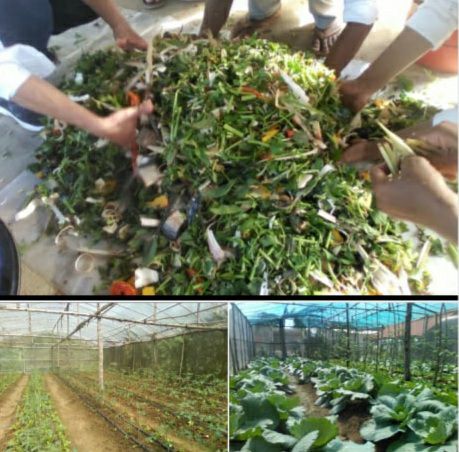
SMALLHOLDERS IN CAMBODIA GET INTERESTED IN MAKING COMPOST FOR THEIR VEGETABLE PRODUCTON!
It is the fact that climate change and increased prices of agri inputs have put additional pressures for farmers, especially smallholders. Smallholders in rural Cambodia have the same experiences and they are not profitable to survive the family members because they depend much on import for instance agri inputs, facilities, fuel and animals feed while the prices now are increasing.
Within CFAP Cambodia, we have discussed amongst members’ organizations and we realized that integrated agriculture in a loop in a regeneration and recycling manner in a rotation system for instance animals rearing, vegetable growing and biogas development for rural farmers would help, however these needed lots of money for smallholders which they are not affordable at the moment. Further the capacity building for youth in agriculture will accelerate agricultural development better in the future.
From 29 August till 2nd of September 2022, CFAP’s Chairman, PRUM Samat and a Managing director, SOK Sotha visited a smallholder in Battambang province, Cambodia invited by DCA Cambodia to celebrate the Ekokaksekor app festival. Further, we got opportunity to visit farmers and had good exchanges, we could realize that smallholders get interested in making compost for their integrated vegetable production on their small scale farms in particular growing in the net house that can help them to improve the quality of soil, the quality of vegetable and increase yield three to four times compared to normal practices as well. Farmers use less water when they grow in net house, not much threats from pests and the vegetables are safer for consumers.